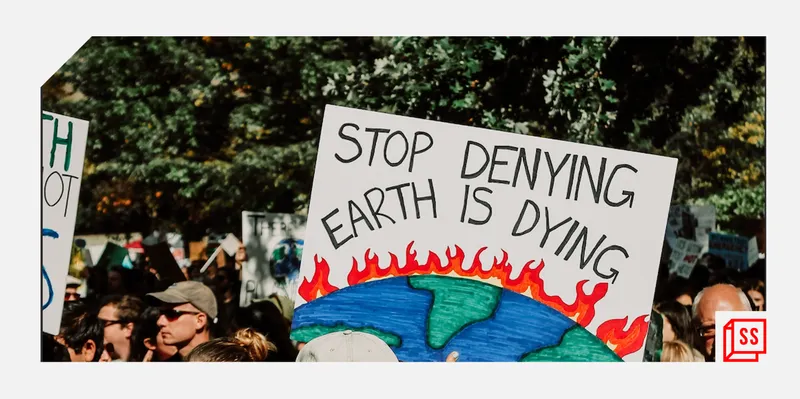Is human behaviour making or breaking the environment?
Human behaviour has affected nature adversely over the last many decades, and it is the collective responsibility of societies around the world to ensure that we work to reverse this.
Humans and the environment they live (comprising the ecology, plants, and nature) have an ancient and distinct relationship.
We have made significant industrial and economic progress in the past 200 years. It is estimated that the carbon emissions before the year 1750 were almost zero, demonstrating how human activities and behaviour have affected the planet.
In the race for economic growth and development, the environment has felt the wrath of human activities.
However, from a historical perspective, there are various examples where human-environment interaction has led to the protection of the planet. For instance, the construction of dams avoided floods, agriculture prevented soil erosion and staved off hunger, and science helped treat numerous diseases among animals and humans.
Hence, it is difficult to answer whether human behaviour is making or breaking the environment. Let us look at the negative and positive impacts of human behaviour.

The negative impact of human behaviour
A simple Google search on the topic will show devastating pictures and case studies that indicate how much the quest to own different natural resources has hurt the overall ecological balance.
From deforestation to clogging rivers, the negative impact of human behaviour on the environment comes in different shapes and sizes. Many people, without realising, add to the pressure – and pollution - by resorting to activities such as driving an old car or using unsustainable products.
Sewage and waste management has been one of the biggest challenges for governments and local authorities.
In a country like India, which has 10 out of 15 most polluted cities in the world, it becomes even more important that people change their attitude towards nature, at micro and macro levels. There must be a change in how money is perceived, cultural changes are required, and, overall, an alteration is needed to make our lifestyles more sustainable and planet-friendly.
The traditional way of living, which was friendlier and closer to nature, was attainable and sustainable.
The positive impact of human behaviour
Even though the quest for modernisation and industrialisation for higher GDPs and economic growth has affected the planet, there are many examples that illustrate the positive impact of human behaviour.
Civil societies, individuals, governments, local authorities, and NGOs work together to protect the environment. This has been demonstrated in pro-environmental behaviour that many different sections of society have opted for. Pro-environmental behaviour can not only reduce pollution but also help reverse the process.
Starting with opting for environment-friendly goods to being a part of a massive afforestation campaign, the overall impact of human behaviour on the environment can be best explained as positive and inclusive.
One of the best things about humans is that they learn from their mistakes. With planned campaigns and programmes, some significant steps are undertaken for sustainable growth. For instance, Indians managed to plant over two billion trees last year, making the country the world's second largest contributor to nature (in terms of tree plantation). This is one of the many examples illustrating how people can positively impact the environment through positive behaviour.
Summing up
The two extreme illustrations of the impact of human behaviour on the environment show that impact on the environment is up to humans.
As pollution, carbon emissions, and other negative impacts on nature are the result of human activities, it is the collective responsibility of societies around the world to ensure that the impact can be reversed and a systematic and collaborative programme can be implemented for protection and regeneration of nature.
Edited by Teja Lele
(Disclaimer: The views and opinions expressed in this article are those of the author and do not necessarily reflect the views of YourStory.)








